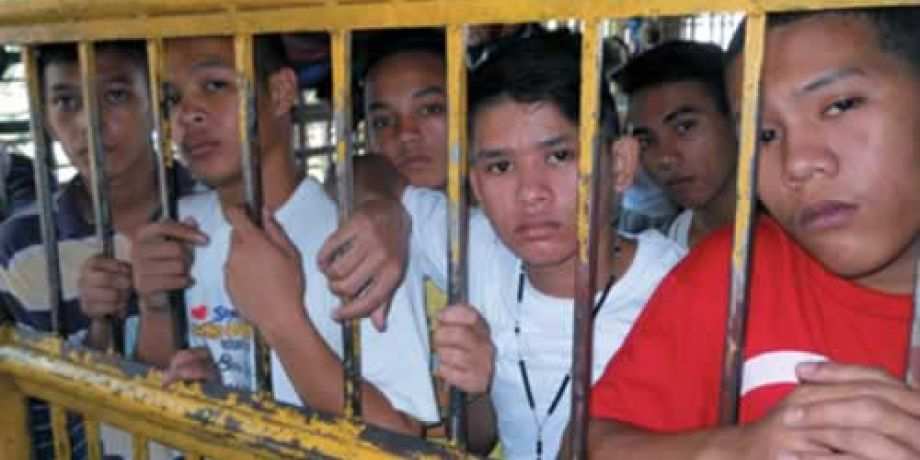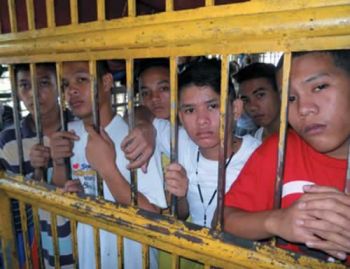
Illegally Jailed Children
"Houses of Horror" is how one visitor described the centers where children are held illegally behind bars or in cages.

Senior Philippine officials responsible for the protection of Filipino children at risk made spot inspections of four child detention centers around Manila following a series of negative reports in the foreign media. The officials representing various government agencies were shocked and greatly disturbed when they saw the terrible conditions of the jailed children behind bars in these detention centers run by local government agencies. The national government has limited jurisdiction over them.
In one center children are held in these conditions from three months to over one year and nine months. The cells for boys are overcrowded. In another detention center there is only one social worker to handle the 43 cases. In three centers the children were in prison cells behind bars.
All the children in another center were barefooted walking on wet floors. One little girl had swollen feet. The children interviewed told the team they just do cleaning and food preparation all day. Some of the children were mentally challenged and in need of special care. A mentally challenged old lady was in with the children in one center.
The fact-finding teams saw that the children suffered 24 hours of confinement with no sunlight exposure. There was bad ventilation and dirty toilets, and the smell of urine pervaded the place. The investigators asked for the case studies and social workers' reports, files or records of the children. There were hardly any! Many children were unidentified and without birth certificates, and no effort had been taken to find parents or relatives.
The government spot inspections were made over a period of two days. They saw the abusive conditions of dirty, smelly toilets, young boys and girls mixed with older youth, wearing dirty clothes, unwashed and caged behind steel bars and others like criminals in rooms like mesh cages.
They saw children lying and sleeping on concrete floors. Most centers were lacking beds, sleeping mats and mosquito nets. Food was eaten sitting on the floor. The floors and walls were dirty. There were no programs for psychological healing, therapy, education, physical exercise, games, books or any mental stimulation.
Some children have been sexually abused by the older youth in the detention centers. One girl was sexually assaulted by a male guard. A criminal case is now in court, but this guard still works at the center and has control over the other children. How can it be allowed to happen?
Young girls who are victims of serious crimes such as sexual abuse, exploitation and human trafficking are locked up in centers all over Manila and elsewhere as if they were criminals instead of victims. They are easy prey for guards and police to sexually exploit again.
The girls held in separate cells receive no therapy or healing. Many are returned to their pimps and abusers since the sex industry is tolerated, and sex bars and brothels are permitted to operate with a city permit signed by the mayor.
The fact-finding team was made up of senior representatives of a number of social welfare agencies including the Preda Foundation which was founded by Columban Fr. Shay Cullen in 1974. The Preda Foundation promotes the human rights and dignity of the Filipino people, especially women and children. Its main focus is to assist sexually exploited and abused children. Preda stands for "People's Recovery Empowerment Development Assistance."
Preda runs a number of homes for rescued children, offering them legal support, educational opportunities, therapy and health care.
Columban Fr. Shay Cullen lives and works in the Philippines.